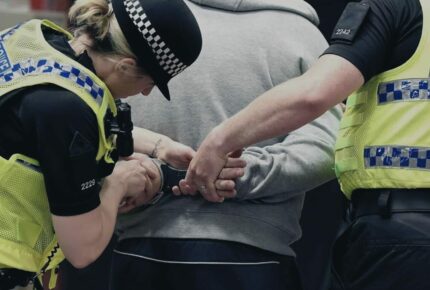

The law surrounding attempted murder is complex, and the stakes are high, with the possibility of a lengthy prison sentence and a permanent criminal record. If you or someone you care about is under investigation or has been charged with attempted murder, it is crucial to understand your rights, the legal process, and the importance of expert legal representation. This article will guide you through the key aspects of attempted murder charges, including whether you need a solicitor, possible defences, bail considerations, court procedures, sentencing, the impact of a first offence, Legal Aid eligibility, and where to seek further help.
Do I need a solicitor for attempted murder?
Attempted murder is an indictable-only offence under English law, prosecuted under Section 1(1) of the Criminal Attempts Act 1981, in conjunction with Section 18 of the Offences Against the Person Act 1861. The prosecution must prove that the accused intended to kill another person and took steps that were more than merely preparatory towards committing murder. Because of the seriousness of the charge and the complexity of the law, having a solicitor with expertise in attempted murder cases is essential for several reasons:
- First, the legal process for attempted murder is highly technical, involving detailed evidence, expert witnesses, and complex legal arguments. A solicitor will ensure that your rights are protected at every stage, from police interviews to court hearings. They will scrutinise the prosecution’s evidence, identify weaknesses, and advise you on the best course of action. Attempted murder cases often involve forensic evidence, medical reports, and witness statements, all of which require careful analysis and, where appropriate, challenge. A solicitor will also be able to instruct barristers and other experts to support your defence.
- Furthermore, the consequences of a conviction are so severe that it is not advisable to attempt to navigate the process alone. A solicitor will negotiate with the prosecution, seek to have charges reduced or dismissed where possible, and represent you in court. They will also advise you on plea options and the potential outcomes of your case.
Without a solicitor, you risk making decisions that could have life-changing consequences. In summary, anyone facing an allegation of attempted murder should seek immediate legal advice from a specialist criminal defence solicitor.
What are possible defences to attempted murder?
In cases of attempted murder, the prosecution must prove beyond reasonable doubt that the accused intended to kill the victim and took steps that went beyond mere preparation. The defence will focus on challenging both the intent and the actions alleged by the prosecution. Common defences include lack of intent to kill, mistaken identity, alibi, self-defence, or that the actions did not go far enough to constitute an attempt.
For example, if the accused’s actions were reckless or intended to cause serious harm but not death, the charge may not be made out. Self-defence may be available if the accused genuinely believed they were in imminent danger and used reasonable force to protect themselves or another. In some cases, the defence may argue that the accused was not present at the scene or that the evidence linking them to the offence is unreliable or insufficient.
A solicitor will carefully examine the prosecution’s case, including witness statements, forensic evidence, and any CCTV or digital evidence. They will identify inconsistencies, challenge the reliability of evidence, and present alternative explanations where appropriate. The defence strategy will be tailored to the specific facts of the case, and a solicitor will ensure that all possible avenues are explored to secure the best possible outcome.
Will I get bail for attempted murder?
Bail in cases of attempted murder is a complex issue, as the courts must balance the presumption of innocence with the need to protect the public and ensure the proper administration of justice. The court will consider several factors when deciding whether to grant bail, including the seriousness of the offence, the strength of the evidence, the risk of the accused absconding, the risk of committing further offences, and the risk of interfering with witnesses or obstructing justice.
Given the gravity of attempted murder, the prosecution will often oppose bail, arguing that the risks are too great. However, bail is not automatically refused, and each case is considered on its own merits. The court may impose strict conditions if bail is granted, such as residence requirements, curfews, electronic monitoring, surrendering of passports, and restrictions on contacting certain individuals.
Will I have to go to court if I’m arrested or charged for attempted murder?
Attempted murder is an indictable-only offence, which means it can only be tried in the Crown Court. If you are arrested or charged with attempted murder, you will first appear before a Magistrates’ Court for a preliminary hearing, but the case will be sent to the Crown Court for trial. Attendance at court is mandatory, and failure to attend can result in a warrant for your arrest and further charges.
The court process involves several stages, including plea and case management hearings, pre-trial reviews, and the trial itself. At each stage, your solicitor will represent you, advise you on the proceedings, and ensure that your rights are protected. The trial will be heard before a judge and jury, who will decide whether you are guilty or not guilty based on the evidence presented.
The court process can be lengthy and stressful, often taking many months from charge to trial. Your solicitor will guide you through each stage, explain what to expect, and prepare you for giving evidence if necessary. They will also negotiate with the prosecution and seek to resolve the case at an early stage if appropriate, for example, by seeking a reduction in charges or a plea to a lesser offence.
Will I go to jail if found guilty of attempted murder?
Attempted murder is one of the most serious offences in English law, and a conviction almost always results in a substantial custodial sentence. The maximum sentence for attempted murder is life imprisonment, although the actual sentence will depend on the circumstances of the case, including the degree of planning, the harm caused, the use of weapons, and any aggravating or mitigating factors.
The court will consider the Sentencing Council guidelines, which set out the factors to be taken into account when determining the appropriate sentence. Aggravating factors may include premeditation, use of a firearm or other weapon, vulnerability of the victim, and the impact on the victim and their family. Mitigating factors may include lack of previous convictions, genuine remorse, mental health issues, or acting under duress.
Will I go to jail if it’s my first offence of attempted murder?
Even if it is your first offence, a conviction for attempted murder is likely to result in a custodial sentence. The courts treat attempted murder with the utmost seriousness, and the starting point for sentencing is a significant period of imprisonment. The fact that it is a first offence may be taken into account as a mitigating factor, potentially reducing the length of the sentence, but it is unlikely to avoid a prison sentence altogether.
The court will consider your previous good character, any evidence of remorse, and your personal circumstances. However, the overriding consideration will be the seriousness of the offence and the need to deter others from committing similar acts. A solicitor will ensure that all relevant mitigating factors are presented to the court and will argue for the most lenient sentence possible in the circumstances.
Can I get Legal Aid for attempted murder?
Legal Aid is available for those facing charges of attempted murder, subject to both a merits test and a means test. The merits test considers the seriousness of the offence and the complexity of the case. Attempted murder is always considered sufficiently serious to meet the merits test, given the potential consequences and the need for expert legal representation.
The means test assesses your financial circumstances, including income, savings, assets, and household situation. If you are in receipt of certain benefits, such as Universal Credit or Income Support, you will usually qualify automatically. Otherwise, your income and outgoings will be assessed, taking into account factors such as dependants, housing costs, and other essential expenses. If your income or assets are above certain thresholds, you may be required to make a contribution towards your legal costs, or you may not qualify for Legal Aid at all.
A solicitor will help you complete the Legal Aid application, ensuring that all relevant information is provided and that your case is presented in the best possible light. They will advise you on the likelihood of qualifying and what to do if your application is refused.
Where to get more help
If you or someone you know is facing an allegation of attempted murder, obtain expert legal advice as soon as possible. The law is complex, the stakes are high, and the consequences of a conviction are life-changing. Stuart Miller Solicitors are highly experienced in defending clients accused of the most serious offences, including attempted murder. For a free, confidential consultation, contact Stuart Miller Solicitors today.
OUR COMMITMENTS TO YOU:
-
Responsive
A legal expert will consult you within 24 hours of making an enquiry.
-
Empathetic
We will always treat you with trust, understanding and respect.
-
Specialised
Your case will be handled by an expert who specialises in your type of offence.
-
Proactive
We will take early action to end proceedings as soon as it is practically and legally possible to do so.
-
Engaged
You will be kept updated on your case at all times. We will provide a named contact available to answer your questions.
-
Caring
We understand this is a difficult and stressful time for you and your family. Our team will support you every step of the way.
-
Tenacious
We will never give up on your case. We fight tirelessly to get you the best possible outcome.

